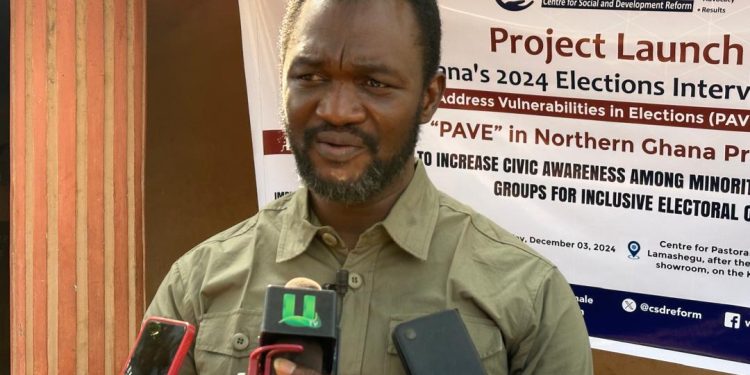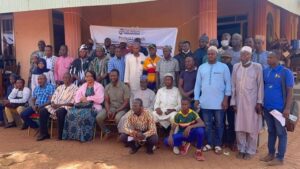
The Center for Social Development Reform (CSD Reform) has urged Ghanaians to protect the voting rights of minority groups as the December 7 general elections approach.
Speaking at the official launch of the PAVE (Peace, Awareness, Voter Education) in Northern Ghana Project, on December 3, David Yiridong Issaka, Executive Director of CSD Reform, highlighted the critical importance of inclusive election. He called on citizens to ensure that all eligible voters, particularly those from marginalised communities, are allowed to exercise their franchise.
“The issue of inclusive elections cannot be overemphasised. By inclusion, we mean women, persons with disabilities, and minority ethnic groups, especially the Fulbe community. Some people wrongly assume they’re not Ghanaians or eligible to vote. However, there are eligible Fulbe individuals who are registered and have the right to cast their vote. It’s crucial we allow everyone the opportunity to participate in this democratic process,” Mr Issaka emphasised.
The PAVE project, which targets underserved communities in the Northern, Savanna, and North-East regions, seeks to promote inclusion, peace, voter literacy, and transparency in the electoral process while amplifying the voices of minority groups.
Mr Issaka further encouraged Ghanaians to turn out in their numbers on December 7 to fulfill their civic duty and called for peaceful elections that foster national unity. “I encourage the general public to come out to vote peacefully. After the elections, we want to see a unified country where everyone feels included and respected,” he said.
Alhaji Abdul Razak Saani, a member of the Peace Council, echoed these sentiments and urged Ghanaians to preserve the nation’s peace. He lauded the PAVE project as a significant initiative for enhancing the inclusion and visibility of minority groups in Ghana’s democratic process.
Developed in collaboration with the National Commission for Civic Education (NCCE), the PAVE project employs localised voter literacy materials in languages such as Dagbanli, Likpankpaln, Gonja, and Fufulde. This ensures broad participation and civic awareness, reinforcing the importance of creating an inclusive electoral environment while fostering peace and cohesion in the targeted regions.

